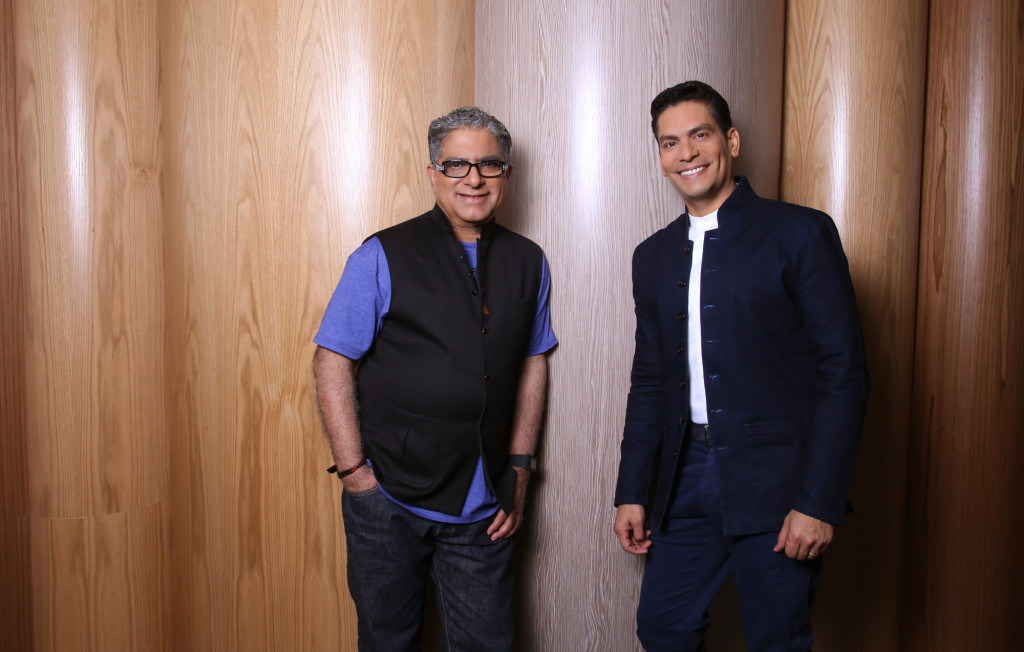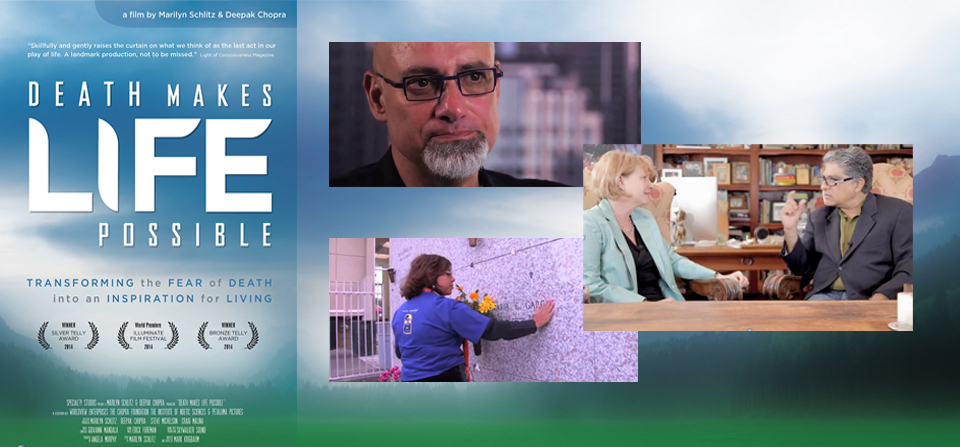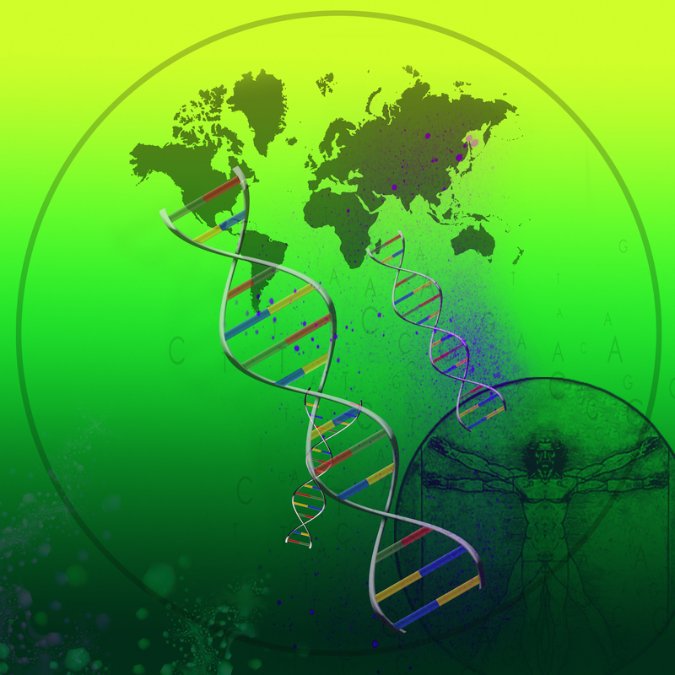Deepak and Ismael having a good time together. – Salud Perfecta, 21 Day Meditation Challenge
How to Be at Peace When the World Isn’t
By Deepak Chopra, MD
We seem to be living out the Chinese curse, “May you live in interesting times.” The curse is probably mythical, but our interesting times contain much turbulence. The horrific refugee situation in Syria, the rise of the even more horrific ISIS movement, not to mention Ukraine and news of natural disasters that never ends–from media reports you might think the humanity is unraveling and the planet with it.
But in the face of chaos, some facts remain constant and stable:
To advance the cause of peace, you must be at peace.
The wars around the world reflect a war in human nature.
No dispute is ever settled unless both sides achieve a level of mutual satisfaction.
When politics comes down to rigidly opposing views, such as one side wanting armed intervention in the Middle East while the other side wants to stay out, all of these facts are being ignored. That’s why the Iraq War ended in chaos, because the issues were never resolved so that all sides achieved mutual satisfaction, and why grudges that simmered for centuries suddenly erupt today.
Death Makes Life Possible
A global movement to transform the fear of death into an inspiration for living and dying well. The DVD is now available on Amazon
Does Everything Happen for a Reason?
By Deepak Chopra, MD, and Jordan Flesher, MA Psychology
The human mind can adapt to almost anything, but not chaos. No one can lead a completely random and chaotic life. The messy room of a teenager may look completely chaotic, but even there a decision was made. The choice was to be messy rather than straighten up the room, and as long as choices exist, true randomness isn’t in charge.
Yet clearly there are random events in Nature, and a vast body of science is based on them, from the random collision of atoms to the random mutations that drive Darwinian evolution. It’s hard to square the randomness in Nature with the incredible orderliness of human thought at its best (allowance must be made, unfortunately, for our own random impulses, which can be capricious, self-defeating, and violent.) Science tends to ignore the fact that the researcher who is driving to work in order to study random particles isn’t heading for a random place on the map. He is guided by purpose, meaning, and direction.
In the last few posts we’ve been looking at how to break this deadlock through synchronicity, or meaningful coincidences. This is a perfect junction point, since “meaningful” has a purpose and “coincidence” is by definition random. What often accompanies experiences of synchronicity is a feeling of trust. The synchronous event seems to reveal to that there is a meaning, purpose, and direction “out there,” somewhere in a mysterious domain where the event was organized. This is what is meant when people say “Everything happens for a reason” – synchronicity is a reminder that randomness is being countered. But saying that everything happens for a reason isn’t provable. It exists as a shared belief, an article of faith, or wishful thinking, and sometimes all three.
Is Physics the Next Guru?
By Deepak Chopra, MD
The worldview of modern physics teases us with spiritual suggestions like the discovery—premature it seems—of the “God particle.” That nickname embarrasses some in the field, but ever since Fritjof Capra’s book The Tao of Physics, the links between Eastern spiritual traditions and the findings of quantum physics have been tantalizing.
Now they are much more than that. In three previous posts I’ve argued that synchronicity, the experience of a meaningful coincidence, points toward a new way of life, one where the strange and spooky behavior of the quantum domain can be used to change our view of everyday reality. There is a staunch band of physicists and their skeptic hangers-on who erect a brick wall between the quantum and classical domains, but more and more they are in the minority.




